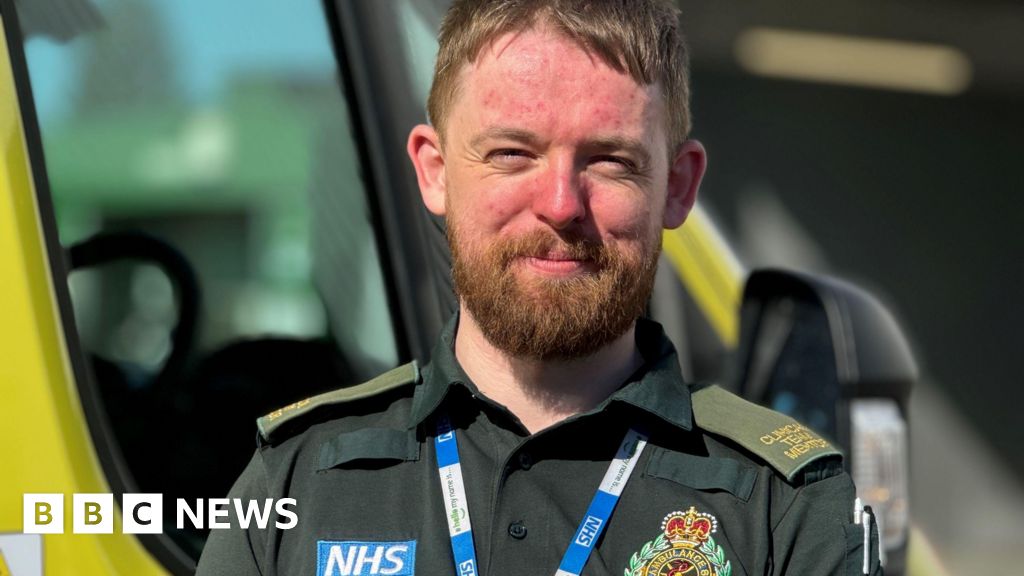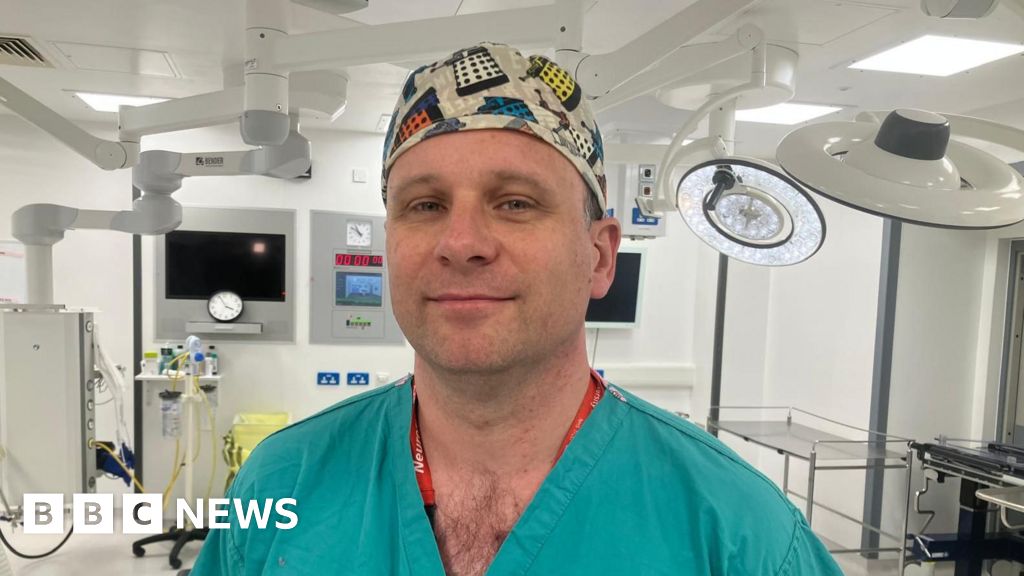ARTICLE AD BOX
Image source, PA Media
Image caption,Rhiannon Davies and Kayleigh Griffiths spearheaded calls for the inquiry after their daughters' deaths
A police force is investigating about 600 cases of maternity care in a probe of hospital failings that may have led to hundreds of baby deaths.
Health Secretary Sajid Javid revealed the scope of the police inquiry during a Commons statement on Shrewsbury and Telford NHS Trust (SaTH).
Mistakes at its hospitals led to babies being stillborn, dying after birth or being left badly brain damaged, a major review found on Wednesday.
The trust has apologised.
Det Ch Supt Damian Barratt of West Mercia Police said its investigation was exploring whether there was evidence to support a criminal case against the trust or any individuals involved.
He said the force had been talking to both medical experts and prosecutors.
He added officers' inquiry remained "very much active" but no arrests had been made.
"We can reassure the community that when there is an update on our investigation we will share this with the families involved first and foremost and then to the wider public," he said.
SaTH said it was cooperating fully with West Mercia Police.
The major review prompting the police comments was led by senior midwife Donna Ockenden. It examined nearly 1,600 incidents amid parents' fears over safety at the Shropshire trust running Royal Shrewsbury Hospital and Telford's Princess Royal Hospital.
The cases spanned the years 2000 to 2019, and, on Wednesday, the review concluded catastrophic failures at SaTH may have led to the deaths of nine mothers and more than 200 babies, leaving other infants with major injuries.
Detailing repeated mistakes, the report found 201 babies could have or would have survived if SaTH had provided better care.
Image source, PA Media
Image caption,Rhiannon Davies (left) lost her daughter in 2009 - campaigning by her and others saw the review by Donna Ockenden (right) set up in 2017
On Thursday, Ms Ockenden told BBC Radio 4's Woman's Hour programme there was an "overconfidence" in the trust's maternity department.
"They thought they were really good; they were wrong," she said.
What staff told mothers
The report highlighted instances of patients being blamed for outcomes, and cases of psychological trauma described as "harrowing and profound".
They included the following episodes:
- Before being anaesthetised, a woman who gave birth in 2009 overheard a senior midwife telling a colleague: "If this baby dies it's on his head."
- In 2011, a woman was accused of "being lazy in labour" and, as an employee of the trust, was advised against making a complaint
- A woman with physical disabilities said she was asked by a consultant in 2008 "how do people like me get pregnant, who would do that to me, and did I know what I was doing"?
- One woman told the review team that after her daughter's death in 2012, she was given her child and put in a room on the maternity ward where "we could hear babies crying" and "we could hear people being congratulated".
Among the review's conclusions were that the trust was not held to account by external bodies and the reasons for the failures included a lack of staff and ongoing training.
Watchdog the Care Quality Commission (CQC) took until 2018 to rule SaTH's maternity services inadequate, Ms Ockenden told Woman's Hour, saying the vast majority of fatalities examined by her team happened before then.
"There were so many lost opportunities," she said. "In this case of this trust, [the CQC] failed to realise, failed to report, there were very, very significant issues."
Ms Ockenden has made a range of recommendations for SaTH, the wider NHS and the government which include working to deliver safe staffing and giving accurate information to families after poor outcomes.
The findings of the Ockenden review are, of course, shocking. Even more alarming is the common thread that runs through this scandal and others.
Neglect and abuse at Stafford hospital during the first decade of this century led to the unnecessary suffering and deaths of hundreds of patients, a subsequent inquiry found. Then there was the investigation into University Hospitals of Morecambe Bay NHS Trust, which uncovered a "lethal mix of failures" that led to the unnecessary deaths of 11 babies and one mother between 2004 and 2013.
Common to all these are poor care, a defensive response by staff and managers and a lack of scrutiny both locally and nationally that failed to uncover the problems for too long.
And this is unlikely to be the end of the story.
An inquiry into mental health care in Essex between 2000 and 2020 has been launched and there are ongoing investigations into maternity care provided in both Nottingham and Kent.
These are all exceptional cases - there is lots of good care in the NHS. But there also seems to be a failure of the culture and systems in the NHS to spot and deal with problems early enough.
Emma Priddey said she still struggled with trauma after giving birth to twins in Telford
The review was commissioned after two families led a campaign for the inquiry.
Richard Stanton and Rhiannon Davies' daughter Kate died hours after her birth in March 2009, while Kayleigh and Colin Griffiths' daughter Pippa died in 2016 from a Group B Streptococcus infection.
SaTH patient Emma Priddey told the BBC she nearly died after giving birth to twins in 2019 at Princess Royal Hospital.
She said she was told to continue with a natural birth despite her son being breech, but then had to be rushed for a "traumatic" emergency c-section, after which her babies were not breathing.
Both, she said, were now "completely fine", although the day after her c-section, she added, she collapsed and was given a hysterectomy, leaving her unable to have any more children.
"I live with it daily, daily things trigger me," she said. "The trauma is on another level for myself and my husband."
'Perfect storm of failure'
Louise Barnett, chief executive at SaTH, said: "We offer our wholehearted apologies for the pain and distress caused by our failings as a trust."
Maria Caulfield, minister for patient safety and primary care, told the BBC a "perfect storm of failure" had occurred in Shropshire.
Questioned about whether successive Conservative governments had done enough to improve maternity services, Ms Caulfield said she recognised there needed to be "more midwives on the ground".
If you are affected by issues raised in this article, help is available through the BBC's Action Line.
Follow BBC West Midlands on Facebook, Twitter and Instagram. Send your story ideas to: newsonline.westmidlands@bbc.co.uk
Related Internet Links
The BBC is not responsible for the content of external sites.

 3 years ago
40
3 years ago
40








 English (US) ·
English (US) ·